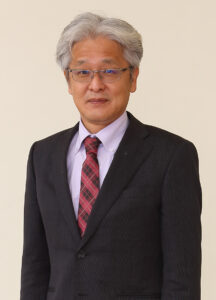SHIMIZU Kinya
Professor
- Ph.D. in Education, University of Illinois
- kinyas[a]hiroshima-u.ac.jp
*Please replace [a] with @ when sending e-mail.
Major Professional Backgrounds
- Hiroshima University, Graduate School of Education, Department of Science Education, Assistant Professor (2000-2007)
- Hiroshima University, Graduate School of Education, Department of Science Education, Associate Professor (2007-2008)
- Hiroshima University, Graduate School for International Development and Cooperation, Department of Educational Development and Culture Studies, Associate Professor (2008-2013)
- Hiroshima University, Graduate School for International Development and Cooperation, Department of Educational Development and Culture Studies, Professor (2013-)
Please refer to the following link for more research achievements. Kinya Shimizu (hiroshima-u.ac.jp)
Research Areas and Themes
My interest started with the measurement of civil scientific literacy, then my interests changed to science process skills and how it relates to teaching learning material and content (Kyozai).
Recently, my interests have moved toward the analysis of science curriculum in terms of intended, implemented, and achieved phases.
Research Areas and Themes of the Students
The main focus of our research laboratory is science education in developing countries such as Bangladesh, Cambodia, Indonesia, Malawi, Myanmar, and Zambia. From the perspectives of intended, implemented, and achieved curricula, we analyze science education for scientific thinking skills, problem-solving skills, and scientific literacy as foundations of self-sustaining development.
The lessons utilizing the experiments and observations are not common in science education in developing countries, but talk and chalk lessons are common. Accordingly, they fail to develop critical thinking skills, which is an essential skill for sustainable development. Therefore, in our laboratory, we frequently conduct surveys on science process skills and misconceptions held by students or teachers. In addition, we identified the problem and solution by analyzing the science curriculum and teacher education.
For students in the “Zambia special education program,” we provided instruction on science lessons through experiments.
The main research topics of the supervising students are as follows:
Master’s thesis = M
Doctoral dissertation = D
-
The Development of Test to Measure Higher-Order Thinking Skills in Science Among Mongolian Primary School Students [M]
-
Factors Influencing Cambodian Students’ Science Self-Efficacy [M]
-
Investigating Teacher Trainees and Teacher Trainers’ Misconceptions in Atom and Molecule [M]
-
Exploring Students’ Scientific Habits of Mind (SHOM) in Indonesia [M]
-
Influence of an In-Service Training Program on Teachers’ Knowledge and Students’ Use of Science Process Skills: The Case of Some Selected Secondary Schools in Lilongwe District, Malawi [M]
-
Critical Thinking Skills in Environmental Education among Secondary Level Students of Bangladesh [D]
-
STEM Education for the Crucial Thinking Skills in Indonesian Science Education [D]
-
The Effectiveness of Computer Simulations for Improving Indonesian Junior High School Students’ Conceptual Understanding of Light and Optical Instruments [D]

